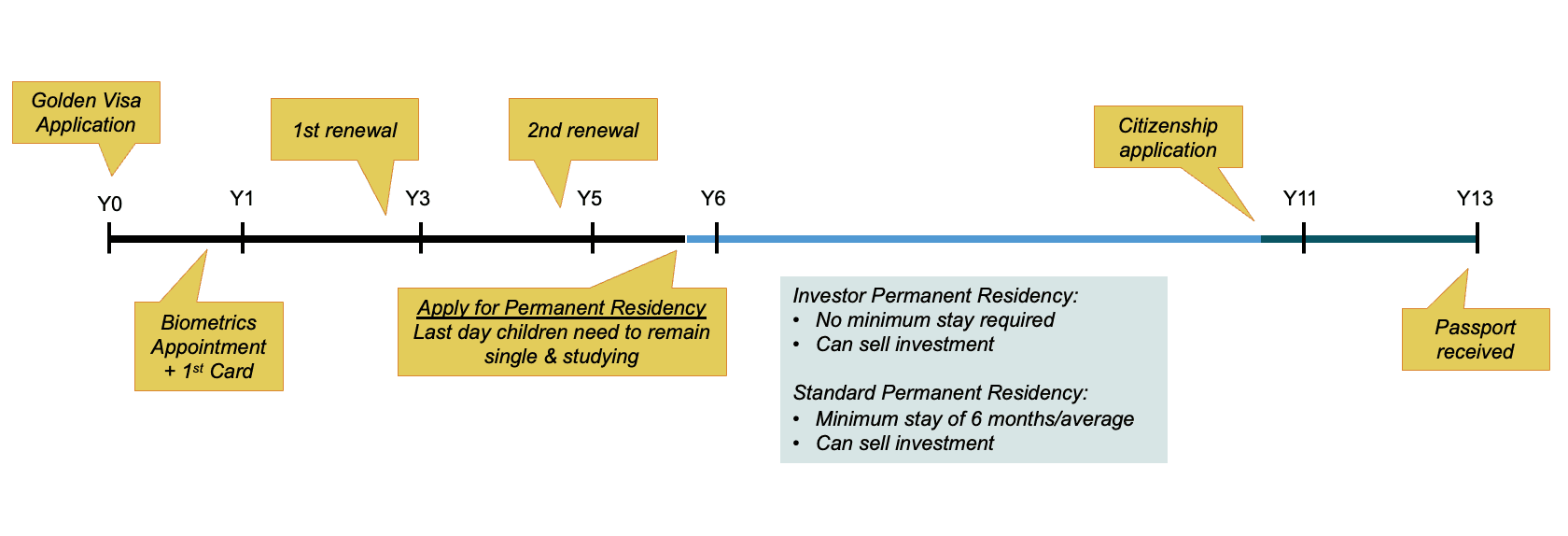Motivation for the Changes
Over the past two years, Portugal’s immigrant population has doubled from around 750,000 to more than 1.5 million, driven largely by low-skilled immigration taking advantage of the country’s open entry rules and the prospect of citizenship after just five years.
In response, the Portuguese government has moved to restructure the immigration framework — shifting from volume to value. The goal is to attract qualified professionals, entrepreneurs, and foreign investment, while curbing unskilled immigration.
This reform is therefore a strategic move toward quality over quantity, strengthening Portugal’s long-term position as a destination for serious investors and global talent.
What Changes?
On October 28, 2025, the Portuguese Parliament approved the long-awaited amendments to the nationality law, marking a new chapter in Portugal’s naturalization framework. While the residence requirement for citizenship has been extended, the Portugal Golden Visa (GV) remains Europe’s most flexible and investor-friendly residency-by-investment program.
We summarize what has changed and what it means for investors going forward.
The Main Changes to the Portuguese Nationality Law
Residence period extended to 10 years
The minimum legal residence required for naturalization increases from 5 to 10 years.
Exceptions apply to EU citizens and citizens of Portuguese-speaking countries (CPLP), who will only need 7 years of legal residence.“Clock start” tied to residence permit issuance
The residence count will now begin only once a valid residence permit is issued, revoking the 2024 rule that included time spent waiting for approval. This is largely an administrative correction, as the government expects permit issuance to return to normal timelines. We recently received biometric appointments within 6 months of application and expect the first residence card within 9 months, down from nearly 2 years previously. While it’s too early to say this is the new standard, the trend is clearly encouraging.Stronger integration criteria
Applicants must now demonstrate knowledge of Portuguese culture, history, and democratic values through a civil knowledge test, and sign a declaration of commitment to constitutional principles.No transition period
The law does not establish any transition or grandfathering rules. Once it comes into force, it will apply immediately to all applicants and current residents.Approval and political stability
The amendments were approved by a broad parliamentary majority, and are now awaiting formal promulgation by the President of the Republic — a procedural step that is not expected to bring any substantive change.
The current government, which is the same political party that originally created the Golden Visa program, maintains strong parliamentary support for the program. This broad consensus ensures policy stability going forward.
It is also important to stress that any future revision of nationality access is far more likely to simplify procedures or ease requirements rather than make them stricter.
With the 10-year framework now aligned with most European norms, the law is unlikely to tighten further.
What remains unique in Portugal is that Golden Visa investors do not need to reside permanently in Portugal to qualify for citizenship — contrary to what happens in most other European countries.
What This Means for Golden Visa Holders and Applicants?
The Portugal Golden Visa is — and always has been — a residency-by-investment program, not a citizenship-by-investment scheme - which is prohibited by EU law. The nationality law and residency law are entirely distinct. Holding a residence permit does not automatically grant any right to citizenship, and eligibility will always depend on the law in force when the applicant becomes eligible.

New timeline going forward:
- Year 0: Golden Visa application submitted. Biometrics appointment and first residence card issued (after 9 months, according to current forecast)
- Year 2: First renewal
- Year 4: Second renewal
- Year 5: Permanent Residency (Investor or Standard path) - last day children must remain single and studying:
- Investor Permanent Residency — no minimum stay required, investment can be sold.
- Standard Permanent Residency — average 6-month stay per year, investment can be sold.
- Year 10: Citizenship application.
- Year 12: Passport received.
Comparison: Portugal Golden Visa — Before and After the 2025 Nationality Law
| Topic | Before (Until Oct 2025) | After (From Oct 2025) |
|---|---|---|
| Time to Citizenship | 5 years | 10 years — 5 years under the Golden Visa + 5 years under Permanent Residency |
| Counting for Citizenship | From the date of application submission | From the issuance date of the first residence permit (currently around 9 months) |
| Children’s Eligibility | Must remain single and studying until the citizenship application (Year 5) | Unchanged — must remain single and studying only until the permanent residency application (Year 5) |
| Investment Lock Period | Minimum 5 years | Unchanged — still 5 years; investors may sell after obtaining Permanent Residency |
| Minimal Stay Requirement | 14 days every 2 years | Unchanged — 14 days every 2 years (during the first 5 years only); no minimum stay for Permanent Residency |
| Test Requirements | Citizenship: A2 Portuguese test | Permanent Residency: A2 Portuguese test; Citizenship: A2 Portuguese test + Culture test |
In practice, the path ahead is now well defined in a 5+5 timeline:
5 years of Temporary Residence under the Golden Visa scheme (2-year renewable resident cards), followed by
5 years of Permanent Residency, which can take one of two forms:Investor Permanent Residency — offers no minimum stay requirement and allows investors to sell their investment after the fifth year.
Standard Permanent Residency — requires an average of six months of residence per year.
Golden Visa holders qualify for the Investor category, providing maximum flexibility, although it involves higher government fees. You can compare both options using our Golden Visa Cost Simulator.
The Permanent Residency regime for Golden Visa investors allows them to maintain their Portuguese status without the need for permanent physical residence and offers the flexibility to liquidate their investment after the initial five years.
Portugal therefore continues to offer the most flexible and secure residency paths in Europe — ideal for investors seeking optionality and long-term planning without mandatory relocation.
Requirements for Permanent Residency - Portuguese A2 Level test Requirements for Citizenship - Portuguese A2 Level test + Culture test
Is the Portugal Golden Visa the Right Option for Me?
Many investors are now asking whether the Portugal Golden Visa remains attractive under the new framework. The answer depends on your objectives — but for many, Portugal remains unmatched in Europe.
Portugal continues to be the only EU country offering a clear, legally established path to citizenship without requiring permanent residence.
By contrast, other countries offering residency-by-investment programs — such as Greece, Hungary, or Latvia — require 7 to 10 years of continuous residence before an applicant may apply for nationality.
The question then becomes: Do you prefer to invest in a regulated European fund market, within a stable and vibrant Western economy, or in jurisdictions closer to Europe’s periphery, where economic and political volatility are higher?
For those seeking a flexible Plan B, a diversified European investment, and the option of relocation if needed, Portugal remains the benchmark.
Citizenship should not be the deciding factor — it is a potential benefit, not the goal.
The Golden Visa continues to offer something uniquely valuable: European freedom of movement and a secure legal status, without demanding permanent relocation.
Clarity Brings Confidence
With the new nationality law approved by a large majority, Portugal’s legal and political framework for residency is now stable and predictable.
The uncertainties that held many investors on the sidelines for the past year have been resolved.
Portugal continues to offer:
- Residency through regulated investment funds
- Citizenship path with minimal physical presence requirements
- Access to the Schengen area
- A transparent path to long-term security
We remain committed to guiding investors through this new phase — focusing on clarity, compliance, and quality investments in Portugal’s regulated fund market.


